Bearded dragons are fascinating pets and are beloved by many. They need a well-balanced diet to stay healthy and one thing that owners like to try out is different vegetables and fruits to see what their pets will take a liking to. One of the questions that many bearded dragon owners have is related to cilantro – can bearded dragons eat cilantro? In this blog post, we will explore the answer to this question and provide some additional information about the nutritional value of cilantro for bearded dragons.
Herbs in a Bearded Dragon’s Diet
It’s not a secret at all, that a balanced diet with a variety of foods is key to making sure that your reptile pet lives a happy and healthy life. One food item which has to be included in the diet of your beardie is herbs.
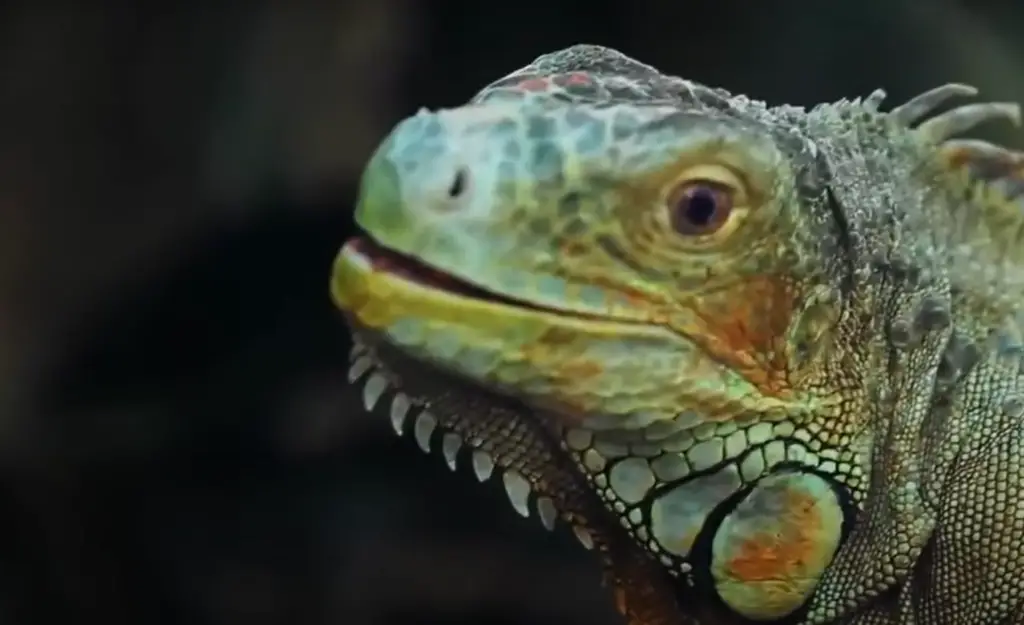
These small plants and vegetation are chock full of essential nutrients which are necessary for these reptiles to thrive. For the beginning we offer you to explore the benefits of feeding herbs to your bearded dragon and what specific herbs you should consider using.
Enhances Nutrient Absorption and Digestion
Herbs are exceptional sources of minerals, vitamins, and fibers that support effective digestion and nutrient absorption in your bearded dragon. These dietary fibers help to smooth out your bearded dragon’s intestine and allow nutrients from other dietary sources to be properly digested and assimilated by the body. Herbs like dandelion greens, rosemary, basil, and parsley are ideal for promoting healthy digestive and urinary functioning in your bearded dragon.
Boosts Immunity
Herbs contain plant-based bioactive compounds that are critical to the immune health of your bearded dragon. These bioactive compounds provide antioxidant and anti-inflammatory properties that aid in defending your bearded dragon from bacterial and viral infections. Some common herbs that contain beneficial bioactive compounds include oregano, thyme, and mint.
Aids in Maintaining Health
If you want your beardie to avoid some health issues, for example, gastrointestinal infections and respiratory disease, it’s a great idea to try feeding some herbs to your reptile pet. Herbs such as chamomile and calendula promote overall wellness in these reptiles.
Provides Variety and Flavor
Adding herbs to the diet of your bearded dragon may increase the variety of its food options and boost flavor at mealtime.
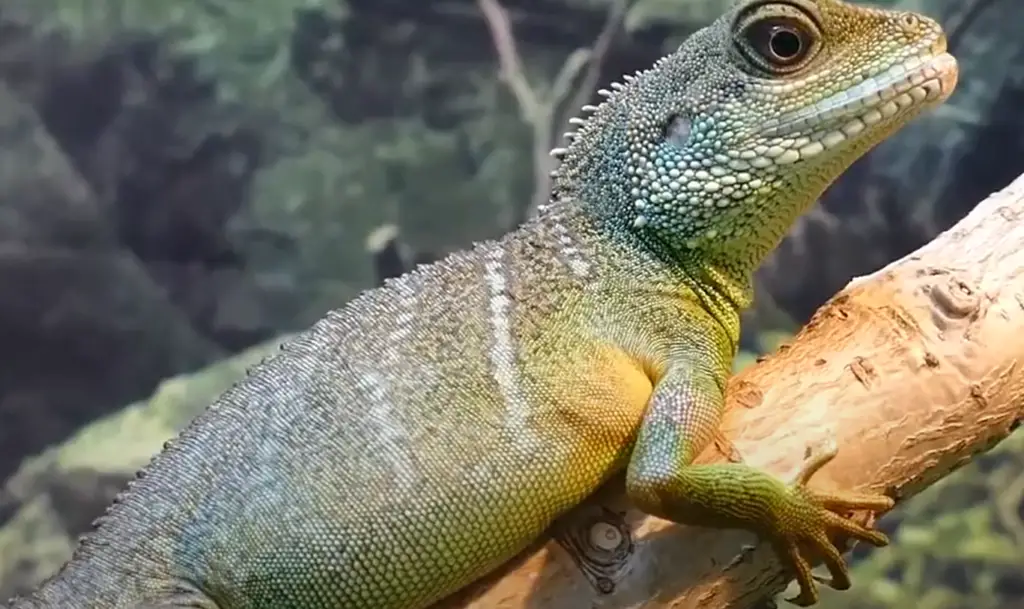
Herbs are a great way to jazz up your beardie’s meal with new smells and tastes. Adding herbs like parsley, basil, and cilantro to your bearded dragon’s salad can add different flavors that will excite their taste buds and encourage them to explore new foods.
Easy to Source
Herbs can easily be found at your local grocery store or farmer’s market. You can also grow your own herbs at home using a windowsill or backyard garden. This makes herbs both convenient and cost-effective additions to the meal of your beardie.
Including herbs in the diet of your bearded dragon will definitely enhance their digestion, immunity, and overall health. Not only are they colorful and varied in flavor, but they provide a significant nutritional boost to your beloved pet.
Happy feeding!TOP Herbs for a Bearded Dragon
It is crucial for the owners of bearded dragons to know how important it is to provide your pet with proper nutrition to keep it healthy and happy. One of the best ways to ensure this is by including an array of fresh herbs in your pet’s diet. Herbs not only enhance the flavor of the food, but also possess medicinal and nutritional properties that can boost your pet’s immunity. From parsley to dandelion, in this part of our article we will compare the top herbs for a bearded dragon that can work wonders for their well-being.
Parsley
Parsley is a nutrient-rich herb that contains calcium, iron, and also some vitamins, for example, C, A, and K.Apart from the nutritional benefits, parsley is also a great digestive aid and can help prevent bloating and gas in your pet. You can add small amounts of chopped parsley to your pet’s food ideally twice a week.[1]
Dandelion Greens
These vibrant greens are loaded with vitamin A and calcium and are a great source of antioxidants. Dandelion leaves are also a natural diuretic, which means they can help with liver and kidney function, and provide your pet with extra hydration. This herb can be fed to your pet a couple of times a week in small amounts.
Mint
Mint is a powerful herb that has anti-inflammatory and antibacterial properties. It is particularly useful for maintaining digestive health and preventing bacterial infections. You can add a sprig or two of mint to your pet’s food every now and then.
Rosemary
This fragrant herb is high in antioxidants and has anti-inflammatory properties that can help with joint pain and inflammation in your pet. Rosemary also aids in digestion and respiratory health. You can add a small amount of dried rosemary to your pet’s food once a week. [1]
Coriander
Coriander is an herb with anti-inflammatory properties and is known to aid in digestion. It is also high in vitamin C and can boost your pet’s immune system. You can add a small amount of chopped coriander leaves to your pet’s food twice a week. [1]
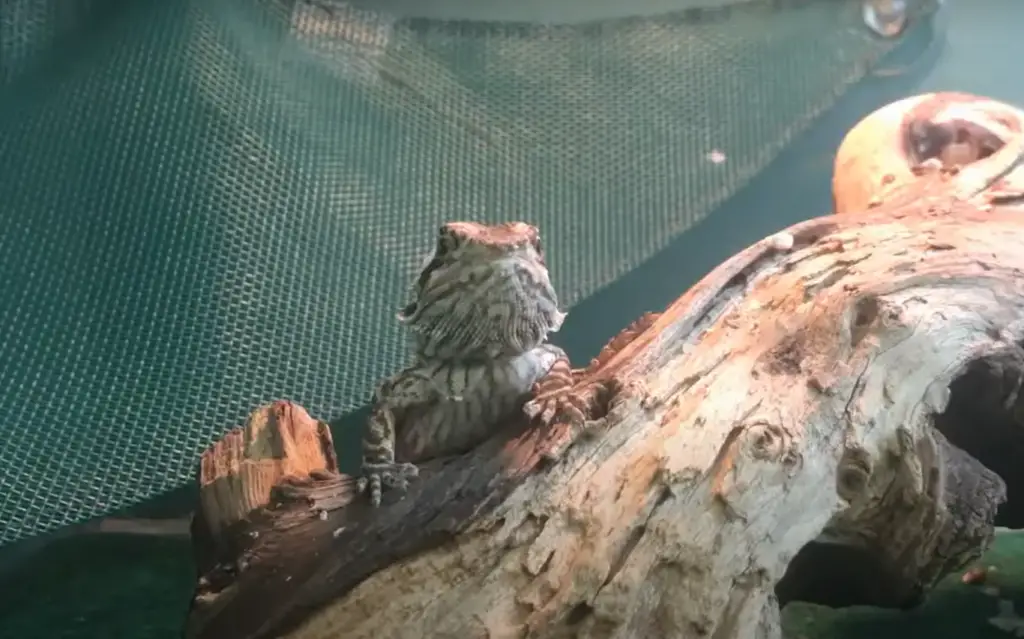
Feeding your bearded dragon with fresh herbs is a smart and easy way to boost their nutrition, health, and happiness. Apart from the herbs mentioned above, some other great options for your pet include basil, thyme, and oregano. However, it’s essential to ensure that you don’t overfeed your pet with herbs, as some herbs, when consumed in excess, can cause harm to your pet. So, always remember to feed small amounts every few days and incorporate a variety of different options into their diet. Here’s to happy and healthy bearded dragons!
Toxic Herbs for a Bearded Dragon
As pet owners, you probably always aim to make the life of our beloved animals happy and healthy. This is especially true when it comes to our bearded dragons, curious reptiles that require proper nutrition and care to thrive. While offering fresh greens and herbs is a great way to add variety to their diet, some plants can be potentially harmful or toxic to our scaly friends.Here we’ll go over some of the toxic herbs to avoid feeding your bearded dragon, so you can keep them happy and healthy.
Avocado
While they may be a nutritious and popular fruit for humans, avocados contain a toxin called persin that can cause respiratory and cardiovascular problems in bearded dragons. Additionally, the high fat content can lead to liver and pancreas damage. So avoid feeding your beardie guacamole or avocado slices, and opt for safer plant-based treats instead.
Aloe Vera
Aloe vera has been used for medicinal purposes for centuries, but it’s not a suitable herb for bearded dragons. The sap and leaves of the plant contain aloin, a compound that can cause diarrhea, dehydration, and even kidney disease. Some people mistakenly believe that aloe vera can help with constipation in bearded dragons, but this is a dangerous myth. If your pet is having digestive issues, consult a veterinarian instead of giving them a home remedy.
Daffodils
These cheerful flowers are a sign of spring, but they’re extremely poisonous for bearded dragons. All parts of the daffodil plant contain lycorine, a toxic alkaloid that can cause vomiting, tremors, and cardiac arrhythmia. If you have daffodils in your garden or home, make sure your bearded dragon can’t access them, and dispose of any fallen petals or bulbs carefully. [2]
Ivy
Ivy is a common houseplant that may look pretty, but it’s not safe for bearded dragons to ingest. The leaves and stems of ivy contain saponins, which can irritate the digestive tract and cause vomiting, diarrhea, and excessive salivation. If you notice your bearded dragon munching on ivy, remove them from the plant and offer them a different, non-toxic herbal option like parsley or cilantro. [2]
Foxglove
Foxglove is a striking flower with bell-shaped pink or purple blooms, but it’s highly toxic to bearded dragons (and most other animals). The plant contains cardiac glycosides that can cause heart failure, as well as other symptoms like nausea, confusion, and seizures. Even small amounts of foxglove can be lethal, so keep this plant out of your bearded dragon’s reach and never use it as a decorative element in their habitat.
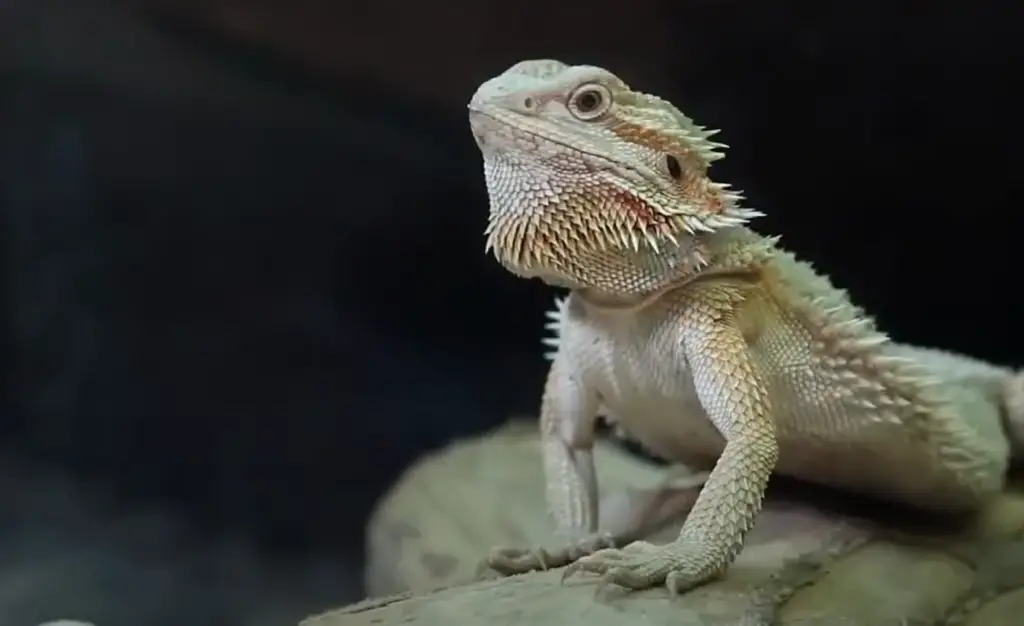
In conclusion, providing a safe and varied diet for your bearded dragon is essential for their health and well-being. While it can be tempting to offer them a taste of everything in the fridge, it’s important to do your research and avoid feeding them any potentially harmful herbs or plants. By avoiding toxic plants like avocado, aloe vera, daffodils, ivy, and foxglove, you can help keep your bearded dragon healthy and thriving for years to come. As always, if you notice any unusual symptoms or behaviors in your pet, consult a veterinarian promptly.
Can Bearded Dragons Eat Cilantro?
Bearded dragons are adorable creatures that make great pets. However, taking care of a bearded dragon requires some effort, including providing them with a proper diet. As such, one of the questions that pet owners frequently ask is whether cilantro is a safe food for their bearded dragon. In this part of our article, we’ll take a closer look at this topic, and help you understand whether cilantro should be included in your pet’s diet or not.
Cilantro is a herb that is frequently used in cooking and can add a lot of flavor to a dish. It is also known for its various health benefits. However, when it comes to bearded dragons, experts suggest not feeding them with cilantro. While it is not toxic to bearded dragons, cilantro has a high level of oxalates. These may bind to calcium in the digestive tract, which can lead to calcium deficiencies.
Calcium is a highly important mineral for these reptiles, that’s why it is vital to ensure that they receive enough of it in their diet. When a beardie lacks calcium, it may develop metabolic bone disease, and it is a severe health condition that can cause a loss of appetite, muscle tremors, and even death.
If you want to ensure that your bearded dragon receives adequate calcium, it is recommended that you feed them with foods that contain high levels of this vital nutrient. You can feed them with dark leafy greens, for example, mustard greens,collards, and turnip greens, as well as calcium-rich fruits.
In some cases, bearded dragons may develop a calcium deficiency despite receiving the correct amount of calcium. This is because they may not absorb the nutrients adequately. If this is the case, it is critical to contact a veterinarian, who can suggest the appropriate supplements to give your pet.
In conclusion, be careful when it comes to feeding your bearded dragon with cilantro. While it is not toxic to them, it contains high levels of oxalates that can lead to calcium deficiencies. If you want to ensure that your pet is healthy, make sure to provide them with a diet that is rich in nutrients, including calcium. If you have any concerns about your bearded dragon’s diet, it is always best to contact a veterinarian, who can guide you in the right direction.
Cilantro in Beardies Diet: How Much and How Often
Bearded dragons are amazing animals with unique dietary needs and preferences. They require a balanced diet of vegetables, fruits, and insects to maintain optimal health. One of the most popular vegetables in their diet is cilantro, also known as coriander. It is packed with essential vitamins and minerals that promote good health for these little dragons. In this blog, we will discuss how much cilantro your beardie should consume and how often you should include it in their diet.
These vitamins and minerals play a vital role in their overall development and health, and they must get these highly important nutrients in their daily diet. However, you must not go overboard with cilantro because it can also lead to health problems in your beardie if consumed in excess.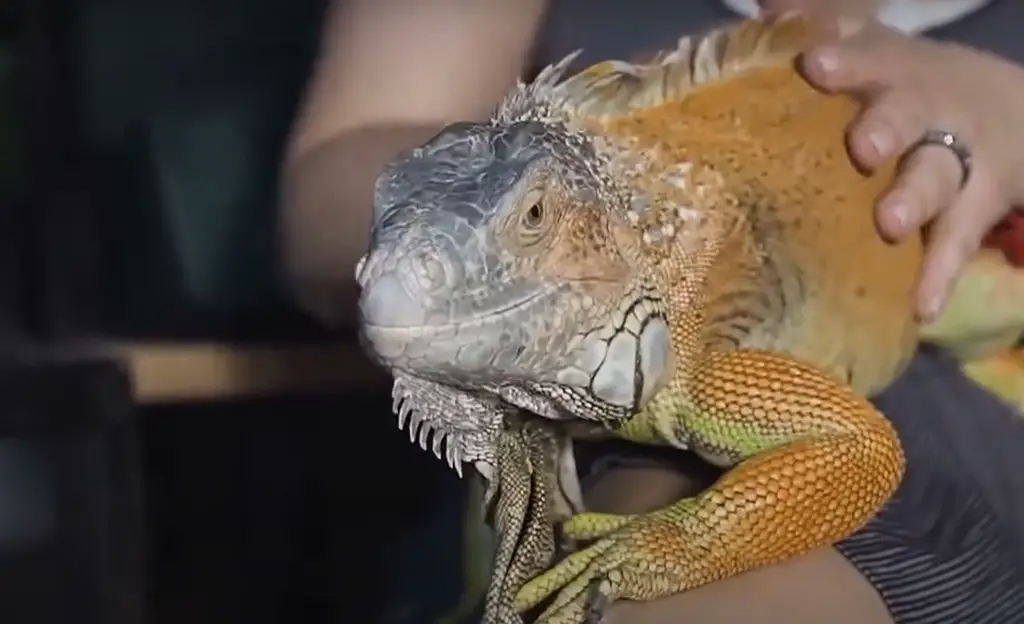
As a general rule, beardies should get a blend of leafy greens, vegetables, and fruits every day.
Variety is essential because each vegetable provides different types of nutrients. [3]When feeding cilantro to your beardie, ensure that it is washed and chopped finely, so it is easy for your beardie to eat. Also, be careful to remove any uneaten cilantro from the enclosure. It is best to offer fresh food rather than leaving it in the enclosure for an extended period.
It is also important to note the frequency of feeding cilantro in your beardie’s diet. As we mentioned earlier, they should have a mix of fruits, vegetables, and insects in their daily food intake, but cilantro can be given as a treat once a week. Giving it as a treat may help to keep your reptile pet interested in the food you offer.
Overfeeding greens, including cilantro, can lead to stomach issues like diarrhea. Therefore, ensure that you are not feeding them too much at once and limit the intake accordingly.
In conclusion, cilantro is a beneficial and nutritious addition to your beardie’s diet. Cilantro should be consumed in moderation, a few leaves per day, and given as a treat occasionally. Be sure to provide a variety of insects, vegetables and fruits, so your beardie gets all the necessary nutrients for their growth and development. A well-balanced diet equals a healthy and happy beardie.
FAQ
How much cilantro can a bearded dragon eat?
Cilantro is a tasty and nutritious herb for bearded dragons. However, just like any food item, moderation is key. Adult bearded dragons can be given cilantro as a treat once or twice a week in small amounts. To be safe, it’s best to only give them a few leaves at a time. As with any food, be sure to wash the cilantro thoroughly before giving it to your pet. It’s also important to note that young bearded dragons should not be given cilantro until they are at least six months old.
Is parsley good for a bearded dragon?
Parsley is another herb that’s safe for bearded dragons to eat in moderation. It contains high levels of vitamin C and calcium, both of which are important for your pet’s overall health. However, it should only be given occasionally and only in small quantities. Too much parsley can cause digestive problems and should be avoided. You should also be careful not to confuse parsley with poison hemlock, which can be deadly to bearded dragons.
What herbs are safe for bearded dragons?
In addition to cilantro and parsley, there are several other herbs that are safe for bearded dragons to eat. These include basil, dandelion greens, and oregano. However, just like cilantro and parsley, these should be given in moderation and only as treats. Be sure to research any herbs or plants before giving them to your bearded dragon to make sure they are safe. Some herbs and plants can be harmful or even toxic to your pet if ingested.
Useful Video:Can Bearded Dragons Eat Cilantro? | Can Bearded Dragon Have Cilantro?
Conclusions
Cilantro is a nutrient-rich herb that is safe for bearded dragons. It can be a healthy addition to their diet when given in moderation. Always make sure to clean the cilantro properly before feeding, and do not add any seasonings or additives. Bearded dragons require a lot of care and attention, and providing them with a well-balanced diet is one of the most crucial aspects to take care of. So, if you’re planning to add cilantro to your bearded dragon’s diet, ensure that it is given in the right amount and follows the recommended guidelines.
References:
- https://reptile.guide/safe-plants-bearded-dragons/
- https://sawneeanimalclinic.com/blog/bearded-dragon-diet/
- https://dragonsdiet.com/blogs/dragon-care/can-bearded-dragons-eat-cilantro#:~:text=Sprinkling%20a%20little%20cilantro%20on,adversely%20affecting%20your%20dragon’s%20digestion.

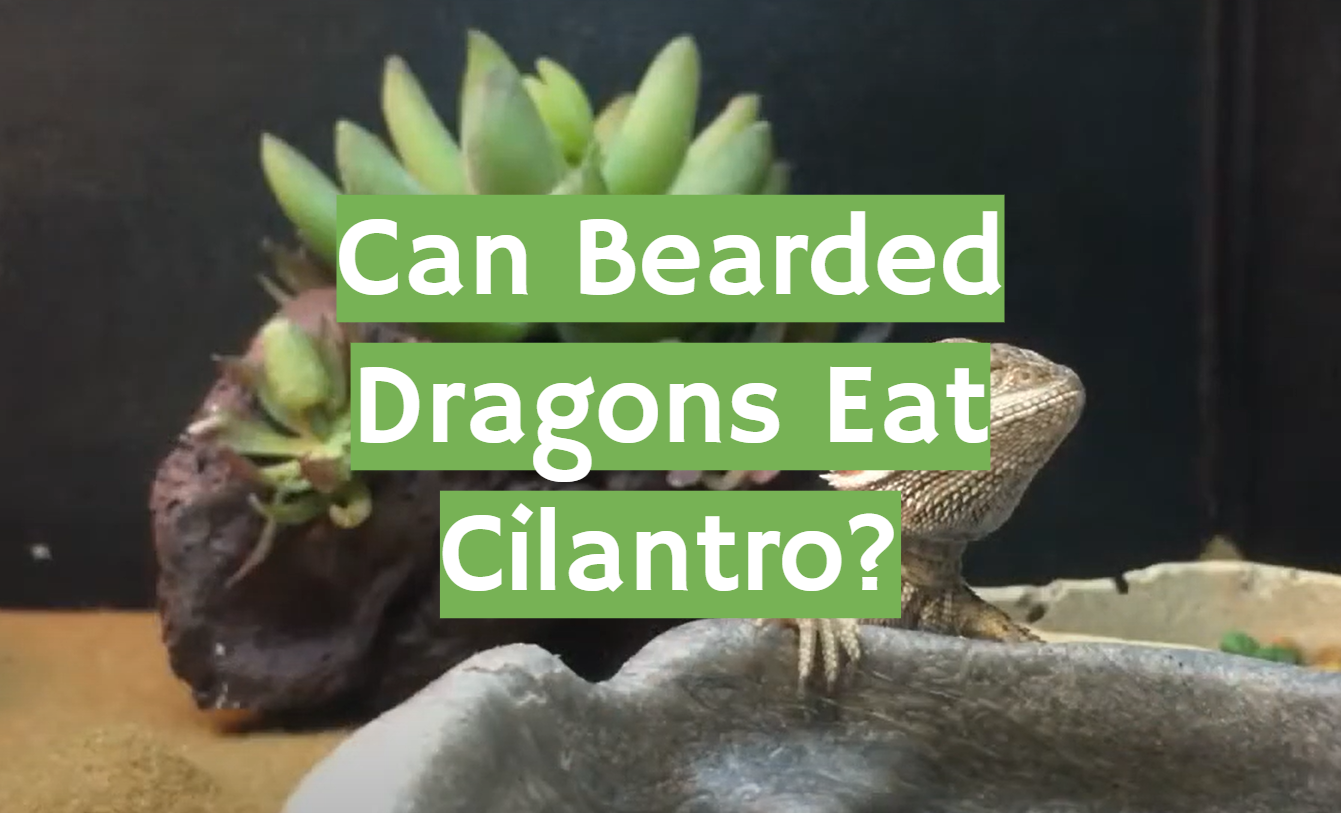




Leave a Review